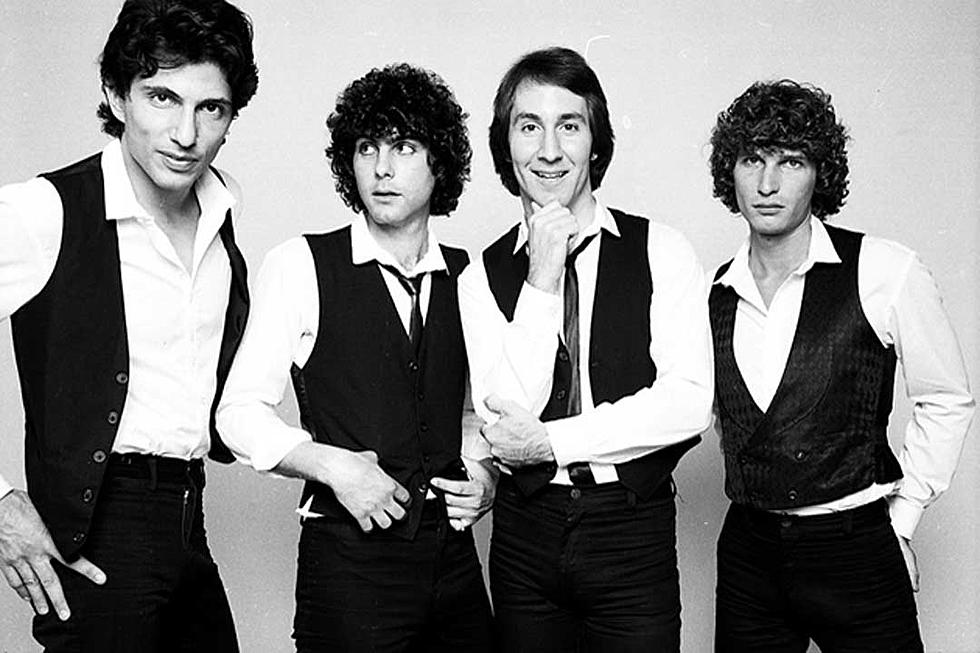
45 Years Ago: How the Smash Hit ‘My Sharona’ Doomed the Knack
Loathed by critics and written off as a novelty act, the Knack was a genuine rock 'n' roll band. As the '70s drew to a close, the Knack was also simply unavoidable. Eventually that over-saturation would drown them, but for a brief shining moment, they were on top. Contrary to legend, however, they were no overnight success story.
The Los Angeles music scene of the late '70s was overflowing with energy, attitude and great bands. Things were moving fast, and by 1978, the landscape of punk outfits like the Germs, the Bags and the Weirdos was starting to give way to the likes of the Plimsouls, the Beat and the Knack.
In the early part of the decade, guitarist and singer Doug Fieger fronted a band called Sky that recorded two albums for RCA. Those albums went nowhere, and by 1974, the group had fallen apart. While his former bandmates moved back home to Detroit, Fieger decided to stay in Los Angeles. Over the next few years, he would meet like minded, seasoned musicians who would become the Knack – including drummer Bruce Gary, bassist Prescott Niles and guitarist Berton Averre. In 1977, Fieger decided to record some new music and called them in to lend a hand. Those demos failed to gain ground, but with the players in place, the Knack was born.
READ MORE: The '70s Biggest One-Hit Wonders
Throughout 1978, the Knack endlessly played the L.A. club scene, with triumphant residences at the Whisky and the Troubadour. Eventually, record companies came calling. "I was aware of them, as everybody else in L.A. was," said producer Mike Chapman in the documentary Getting the Knack, "because there was lines of kids around the block to go see them at their shows." The large fan base they had built up happened to include people like Tom Petty, Stephen Stills and Bruce Springsteen, all of whom would jam with the Knack at the Troubadour. "Bruce Springsteen gets up onstage with us on a Friday night, and on Monday, we have 14 record offers," Fieger memorably quipped.
With the offers rolling in, the band chose Capitol Records. "I was sold the first time I saw them," said Bruce Ravid, the man who signed them. Capitol was the home of the Beatles, and comparisons would dog the Knack from there forward. (Coincidentally, Capitol had previously signed another band called the Knack in 1967; this group released a couple of singles, but they had nothing to do with Fieger and company.)
Watch the Knack's 'My Sharona' Video
Radio Zeroes in on 'My Sharona'
In early 1979, the band entered the studio with producer Mike Chapman to begin work on their debut. Get the Knack was wrapped up in less than two weeks. "I don't think we did two takes on any song, except for 'Maybe Tonight,'" Fieger once said. "What we had to do was make the record quickly," added Chapman, "because to labor over it would have taken that spontaneity out of it." Chapman's production here is, as always, first class.
Once Get the Knack arrived on June 11, 1979, it didn't take long for radio stations to zero in on "My Sharona." The insistent drum beat alone was one big hook, but once the guitar riff moves in, the track evolves into a massive ear worm. Soon, "My Sharona" was emanating from nearly every radio across America. It hit the top of the Billboard chart in the summer of 1979 and stayed there six straight weeks, going gold in just thirteen days. The album followed suit, holding Billboard's top spot for five weeks until Led Zeppelin's In Through the Out Door finally knocked it off.
Familiarity, as it will, bred contempt. "My Sharona" came to be seen as a novelty tune of sorts. Given another listen, however, it emerges as one of the sharpest rock 'n' roll records ever – from the riff to the lyric to the production. Averre is certainly one of the most underrated lead guitarists of the era, and his solo is nothing short of stunning. (Sharona, by the way, was indeed an actual person, and the object of Fieger's very real desires.)
Elsewhere, Get the Knack is full of top shelf, hook-laden rockers. "Let Me Out" remains one of the most powerful album openers ever, while "Your Number or Your Name" and "Oh Tara" are pure pop gold, recalling mid-'60s Hollies and Kinks. "She's So Selfish" and "Good Girls Don't," the album's second single, were both full of words that wouldn't fly past radio censors. After reworking a line, the Knack saw "Good Girls Don't" land just shy of the Top 10.
"Maybe Tonight" steps away from the hard-edged template, arriving as a beautiful ballad with slightly psychedelic ornamentation. A revved-up take on the Buddy Holly classic "Heartbeat" was a perfect fit here, alongside their own "That's What the Little Girls Do." "Frustrated" ends the album on another lusty note, powered by a final massive guitar riff and the fantastic Bruce Gary's powerhouse drums.
Still, the Knack's seemingly instant rise to the top led some critics to question their authenticity, sincerity, and motives. The assumption was that they were some sort of manufactured group, something meant to echo the Beatles and nothing more. Fieger later admitted to the Fab Four's influence on the Knack, but said the overt musical references were "tongue in cheek. It wasn't meant to be taken seriously." Few knew how long the Knack had paid its dues, or just how little promotion was behind their huge debut. "It's funny, people have accused the Knack of being this big hype and that the record company hyped the band," Fieger once said. "I was told at the time by Capitol Records that they spent $50,000 promoting Get the Knack – total."
Watch the Knack Perform 'Good Girls Don't'
The Knack Endure Huge Backlash
Meanwhile, even as radio overkill led to general listener fatigue with the Knack, other labels were hoping to leverage their success. "The Knack didn't capitalize on a movement; they created a movement," rock critic Ethan Barborka said. "The whole record industry descended on L.A. after they released Get the Knack to find other bands that would be 'the next Knack.'"
Hoping to take back a lost sense of mystique, management decided the Knack shouldn't give interviews – a move that backfired. "The manager at the time, I'll excuse him for his innocence, his non-expertise and his being in way over his head," Niles said. "However, his decisions killed us, and as a result, it pissed a lot of people off."
A Knuke the Knack campaign was started by San Francisco artist Hugh Brown. "They were so over-hyped, I thought I'll do something that's kind of obnoxious and kind of funny," Brown said in the Getting the Knack documentary. "Then it just snowballed."
Soon, people were accusing the Knack of being arrogant kids, while some criticized the group as misogynistic because of an abundance of lust-filled lyrics in its songs. And for others, Get the Knack was seen as the watered-down conclusion of the fading punk movement from a few years earlier, a safe and sanitized version of something that had recently revitalized rock.
READ MORE: When the Knack Changed Their Biggest Hit to 'Bye, Corona'
But there was more to the Knack than that, and even Sex Pistols guitarist Steve Jones was a genuine fan. "I've literally played that album a million times, but I couldn't really tell people – 'cause it was kind of uncool, being from the Sex Pistols, and that whole era," Jones said in Getting the Knack. "I loved that album. I still have a copy of it!"
Even today, "My Sharona" – despite its standing as 1979's biggest single – inspires an impressive range of emotions, from love and lust to hatred and parody: "Weird Al" Yankovic's debut single was "My Bologna," and Cheech and Chong made fun of it in Next Movie as "My Scrotum." The Knack never recovered from the backlash. "How could it have changed so much that we were 'the glorious, the wonderful Knack' one minute, and we were this horrible, sell-out, commercial bullshit hype the next minute?" Fieger later mused. "It made me angry."
... But the Little Girls Understand, released in 1980, struggled to No. 15, and the Knack never had another album go higher than No. 53. Fieger died in 2010, after a battle with brain and lung cancer.
Top 200 '70s Songs
Gallery Credit: UCR Staff
They Hated Their Own Albums
More From Ultimate Classic Rock









